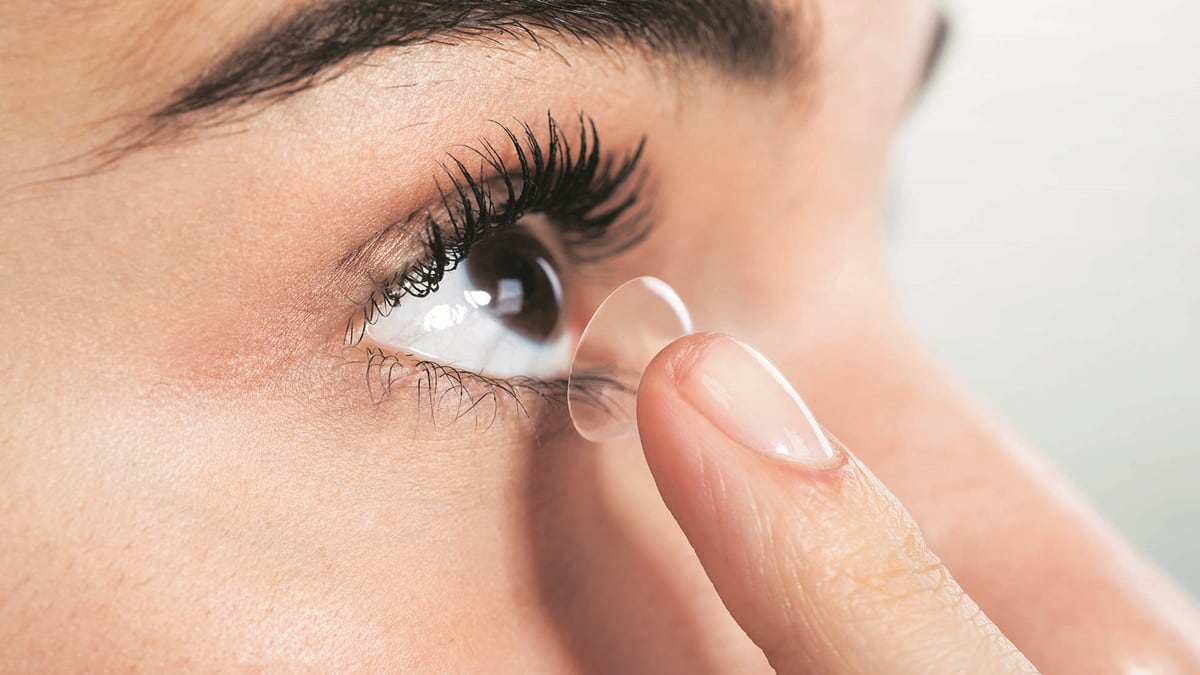Contact lenses have recently been making headlines, but not for the right reasons. A new study conducted in the US has found high levels of organic fluorine, a marker of perfluoroalkoxy alkanes (PFAS) or ‘forever chemicals’, in 18 popular types of contact lenses.
PFAS are a group of chemicals used in thousands of consumer products to make them resistant to water, stains, and heat. They are called ‘forever chemicals’ because they do not naturally break down and have been linked to various health issues such as cancer, liver disease, and autoimmune disorders.
In other news, a TikToker named Doug gained attention on social media when he revealed that he had worn the same pair of contact lenses continuously for three years. Unfortunately, this led to permanent astigmatism and ‘build up’ behind his eyelids. Although Doug eventually recovered after a year of exclusively wearing glasses, this incident has once again raised concerns about the use of contact lenses.
While contact lenses have been a game-changer for those who prefer not to wear glasses, experts warn about certain risks and conditions associated with their use. Dr Deepali Garg Mathur, principal consultant—ophthalmology at Max Multi Speciality Centre in New Delhi, explains that contact lenses can cause problems such as red eyes due to irritation or dryness. Prolonged use of contact lenses can also lead to complications like eye ulcers and corneal vascularisation.
Furthermore, recent reports suggest that sleeping with contact lenses can be seriously harmful. It increases the risk of eye infections, which can potentially result in permanent corneal damage and vision loss. Dr Saurabh Varshney, senior consultant ophthalmologist at Primus Super Speciality Hospital, advises against wearing contacts overnight as it significantly heightens the risk of infection.
So, is LASIK surgery a viable alternative to contact lenses? According to Dr Priyanka Singh, an eye surgeon at Neytra Eye Centre in New Delhi, LASIK can be an effective solution for those who want to ditch glasses or contact lenses. While there may be some complications associated with LASIK, they are rare, and most patients experience improved vision after the surgery.
It’s important to note that contact lens users often misuse their lenses by extending their duration of use or not using lubricants. Dr Mathur suggests that those who are not careful with their contact lenses may consider LASIK surgery as an alternative. However, for those who can adhere to the proper regimen, contact lenses remain a viable option.
To maintain good eye health, experts recommend eating a healthy diet rich in nutrients like omega-3 fatty acids, lutein, zinc, and vitamins C and E. Quitting smoking is also crucial as it increases the risk of various eye conditions. Additionally, wearing sunglasses, using safety eyewear when necessary, taking breaks from staring at screens, and regularly visiting an eye doctor are all important for maintaining good eyesight.
When it comes to using contact lenses, following proper hygiene practices is essential. Always wash and rinse your hands before handling your lenses, clean them after removal, and use recommended solutions for cleaning and storing them. It’s also important to clean your lens storage case regularly and avoid wearing lenses when you’re unwell or have red eyes. Consulting an eyecare practitioner if you experience any unusual symptoms is crucial.
Overall, while contact lenses offer convenience and improved cosmesis, it’s important to use them responsibly and prioritize eye health.
(Courtesy: Dr Santosh Bhide, ophthalmologist and eye surgeon, Ruby Hall Clinic, Pune)

